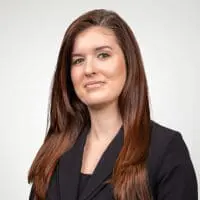SWIPLit
Second Circuit Holds Digital Lending Library Violated Copyright Act
By Dan Staren and Courtney Moore*
The Second Circuit recently affirmed a ruling that Internet Archive, a nonprofit digital library, violated the Copyright Act with its “Controlled Digital Lending” program. In 2020, four leading book publishers sued Internet Archive in the Southern District of New York for copyright infringement after Internet Archive began offering entire digital copies of copyright-protected books to library patrons. Although digital copies were limited to a “one-to-one loaned” checkout ratio, the book publishers argued that Internet Archive improperly distributed copyright-protected works and committed copyright infringement.
Internet Archive opposed the book publishers’ claims and asserted a fair use defense. The District Court rejected Internet Archive’s fair use defense and held that digital lending violated the Copyright Act.
On appeal, the Second Circuit affirmed the District Court’s holding after analyzing Internet Archive’s defense under fair use factors: (1) the purpose and character of the use; (2) the nature of the copyrighted work; (3) the amount and substantiality of the use; and (4) the effect of the use upon the potential market for or value of the copyrighted work. The Second Circuit concluded that the lending program was not fair use and defied the spirit of copyright law.
First, the Court considered commerciality and transformativeness when assessing the purpose and character of use factor. Although Internet Archive acquired donations and received incidental funding, the Court regarded Internet Archive’s online digital library as non-commercial. However, the Court held that Internet Archive’s lending program was not transformative because the digital copies served the same purpose as the original printed copies and lacked any additive or different features relative to the original work.
Second, whether the work was expressive or creative was the Court’s primary consideration for the next factor. While facts and ideas are not protected by copyright law, the Court held that the “author’s manner of expressing those facts and ideas” are protected by the Copyright Act. The Court reasoned that Internet Archive’s lending program expressly duplicated the book publishers’ “individualized expression” and could not be protected by fair use principles.
Third, the Court considered the amount of the copyrighted work provided to the public relative to the work as a whole. Internet Archive provided the entire copy of the printed books in digital form to library patrons, and the Court held that the practice substituted the demand for the publishers’ original works, weighing against fair use.
The final factor considered by the Court was whether Internet Archive deprived the book publishers from obtaining a greater market share in eBook licensing fees. The Court held that this factor also weighed against fair use. Since book publishers have exclusive rights to publish their copyrighted works in any form, including the ability to receive royalties from eBook licensing, the Court reasoned that the lending program would usurp the book publishers’ markets if the practice became widespread.
Considering all the factors, the Second Circuit held there was no fair use. In affirming the District Court, the Second Circuit rejected Internet Archive’s argument that a nonprofit’s charitable intentions allow it to deprive authors and publishers of their rights under federal copyright law.
*Courtney Moore is a Law Clerk in Snell & Wilmer’s Phoenix office and is not admitted to practice law.























